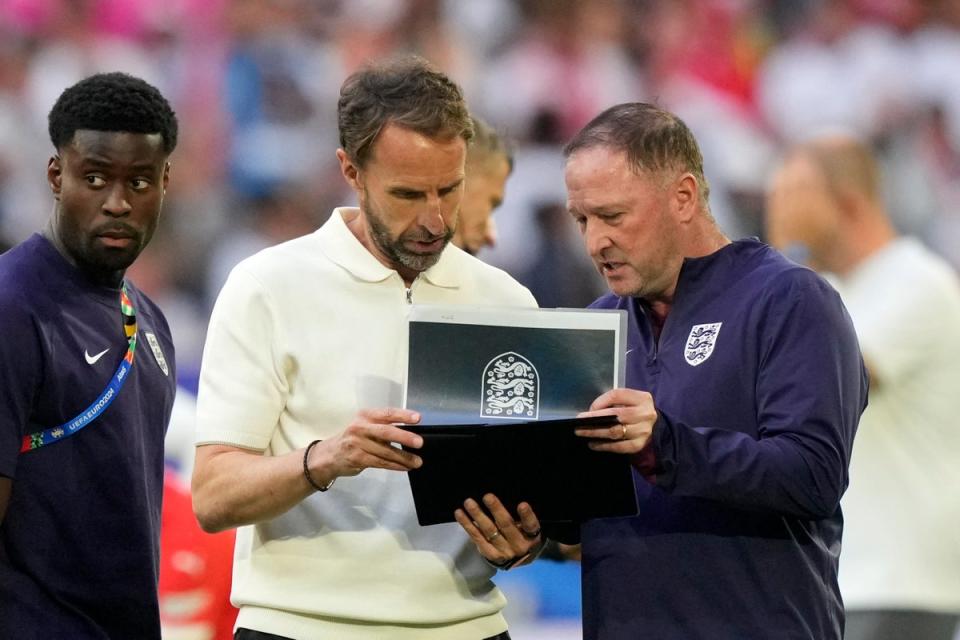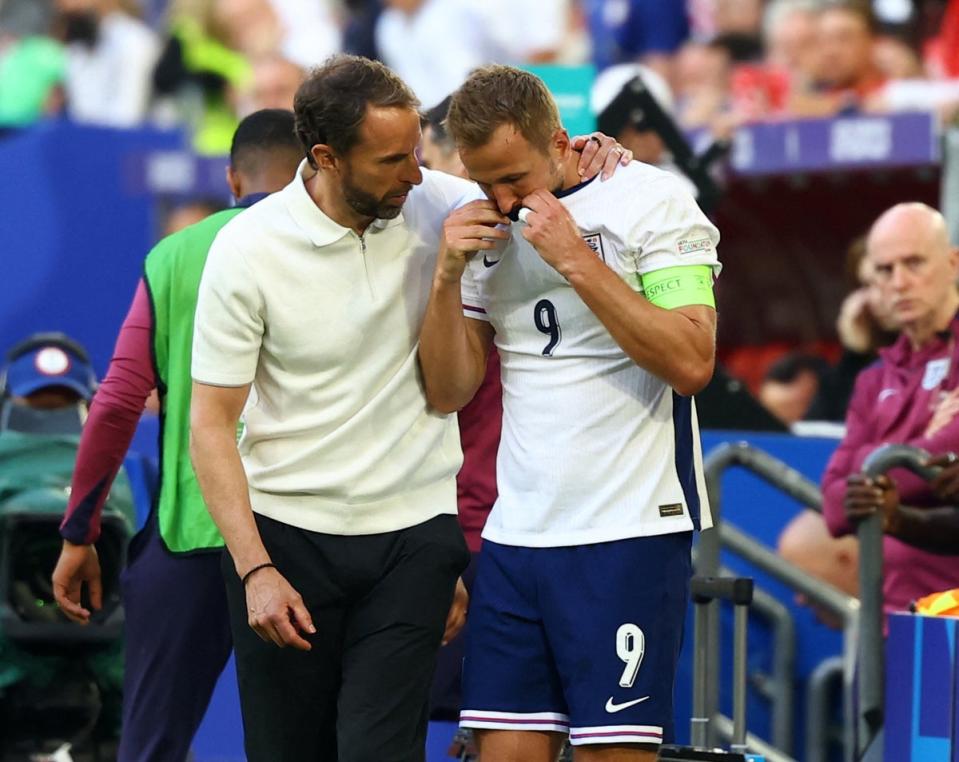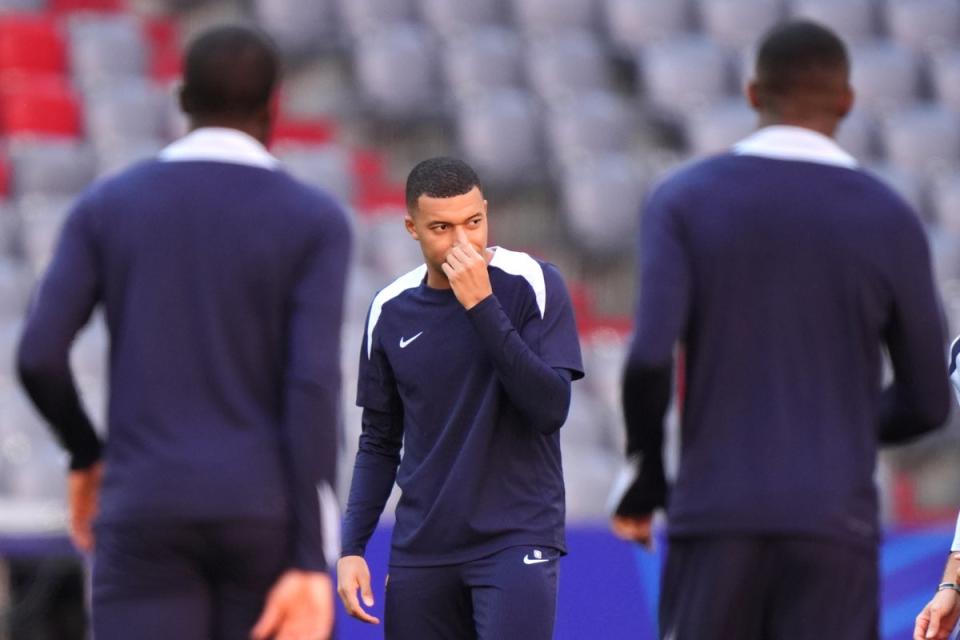Euro 2024: England and France face moment of truth in the fight of style vs substance

England had won on penalties to reach a third semi-final in four tournaments, but if Gareth Southgate was expecting an easy ride in the press conference room after Saturday's meeting with Switzerland, he was mistaken.
"Is there any thought of entertainment for the neutrals when you plan games?" the England manager was asked by a foreign journalist.
Another reporter from Germany then put it to Southgate that England had faced only middling opposition and would his team, perhaps, play "better football" against stronger opponents? Southgate was not going to let anything spoil his mood, and he responded to both questions with his usual thoughtfulness and tact.
If it was not already clear, though, England do not go into Wednesday’s semi-final here as the neutrals' choice.
Southgate's side have ground their way to this stage, providing little in the way of entertainment — spectacular goals from Jude Bellingham and Bukayo Saka aside.
France, who face Spain in Tuesday’s other semi-final, have been equally dull, more able to create openings than England, but even less capable of finishing one; a French player is still yet to score from open play.
This commitment to functional football is part of the story of the two semi-finals. On one side, you have Spain and Holland, the two nations who have done more to champion style and entertainment in the modern era than any others. On the other, there is France and England, both successful tournament teams run by arch pragmatists, for whom the result trumps the need to put on a show.
The question tonight is whether France's experience and defensive nous will prove too much for a vibrant but youthful Spain side, who have been the easiest on the eye at the tournament.
England are unlikely to face a Dutch side playing Cruyffian 'total football'— in fact, they are expected to counter-punch — but it still feels like a contest between style and substance, one team which never loses sight of the need to entertain versus a side for whom winning is everything.
"Whether you play good or bad football, the most important thing is winning games," said Luke Shaw yesterday, neatly summing up England's mentality.

"And at the moment, we're doing that. Whether people like or not how the team are playing, we're in the semi-finals. For us, that's all that matters."
For Southgate's disciples, the end justifies the means, and the parallels with France are no coincidence. The England manager has studied his French counterpart Didier Deschamps, and believes his approach is the best way to deliver at major tournaments.
Minimise risk, keep it tight, rely on moments of brilliance from big players. There is every reason to think their approach is justified; Deschamps' France won the World Cup in 2018, in between losing the finals of Euro 2016 and Qatar 2022, while England have enjoyed unprecedented success under Southgate without yet getting over the line.
Low-risk teams, built on defence, tend to win tournaments, and even the celebrated Spain side won every knockout game 1-0 at the 2010 World Cup.
In responding to the barbed lines of questioning on Saturday, Southgate pointed out that "these are not normal football matches" but "national events" which come with enormous pressure for his young players.

There is, however, also a degree of risk in the manager's reluctance to play to the strengths of his top-heavy squad. When winning is all that matters, winning is all there is.
Playing safe arguably raises the stakes further, because if England fall short this week, what is left behind?
While Deschamps has already achieved immortality, Southgate's legacy will be altogether more complicated if England do not go all the way in Germany; for all their progress, there will be a sense they could have done even more with an attacking approach.
As English, perhaps we should accept that "national events" come with a degree of boredom — royal weddings spring to mind — and what does it matter if the end result if positive?
That is Southgate's calculation, even as the neutrals long for a Spain-Holland final.

 Yahoo Sports
Yahoo Sports 
